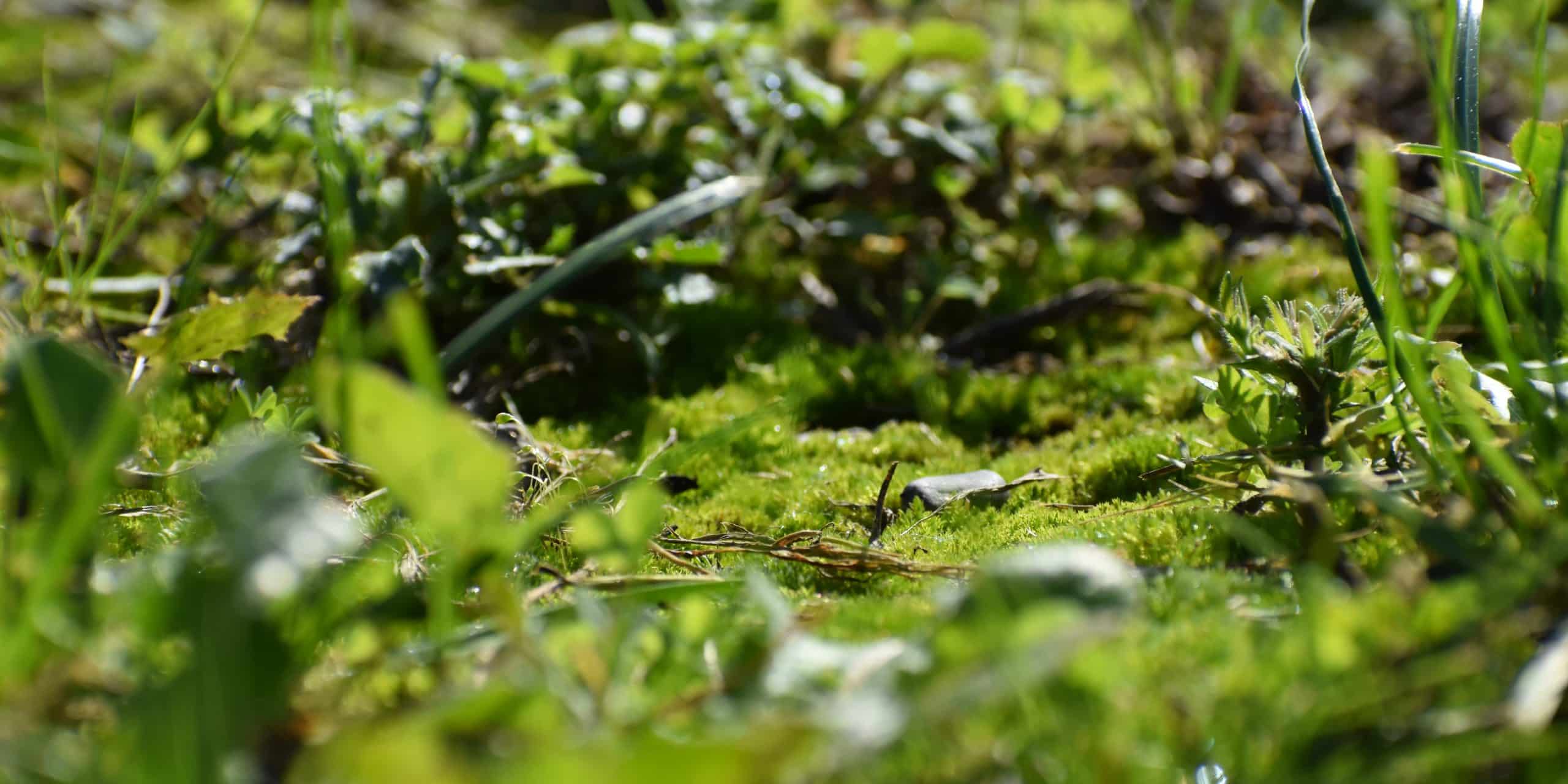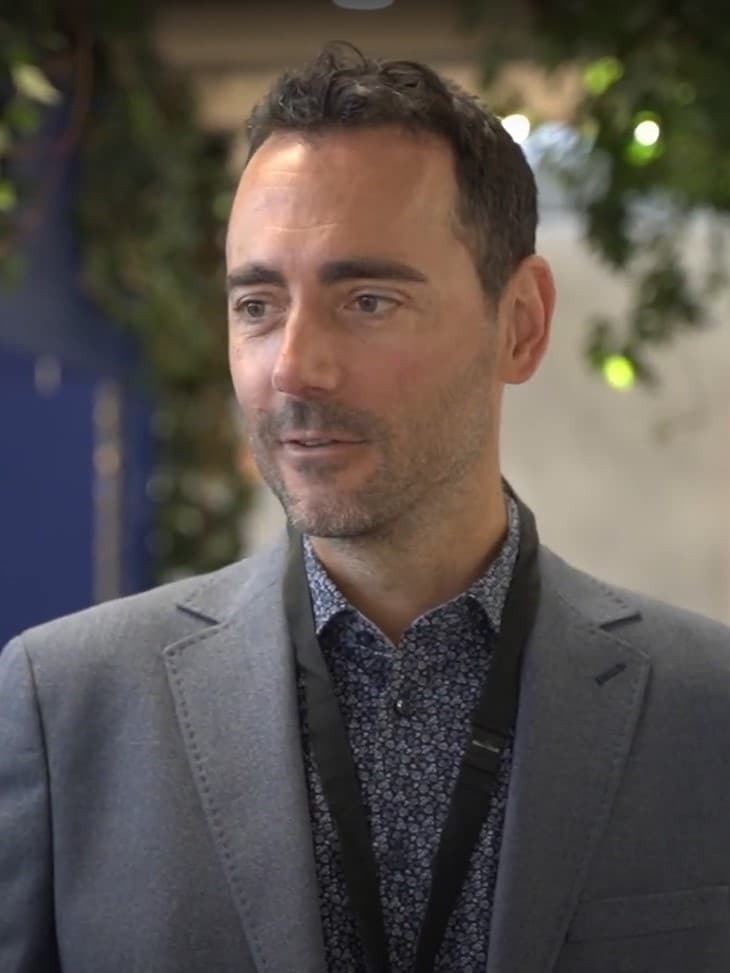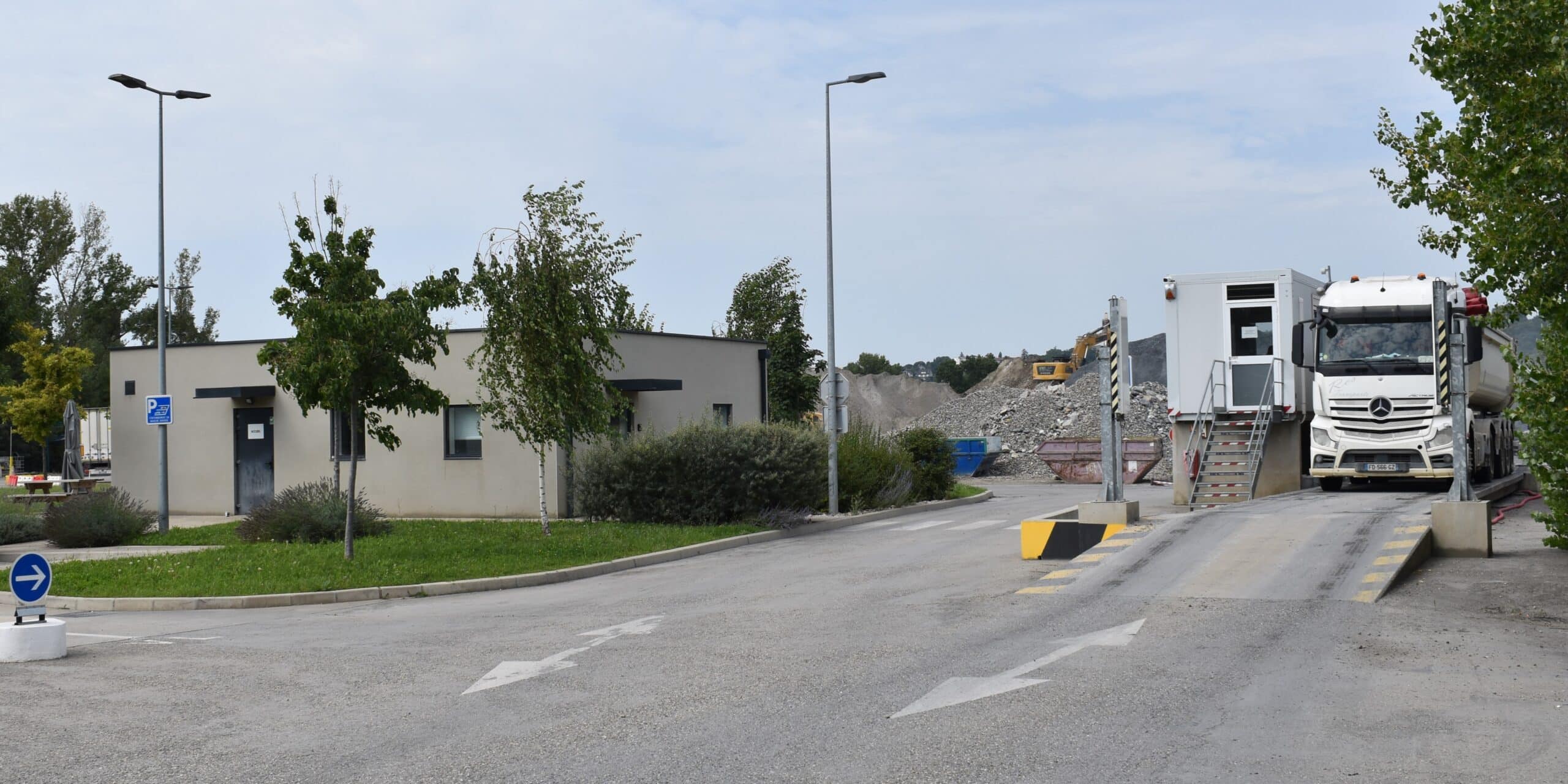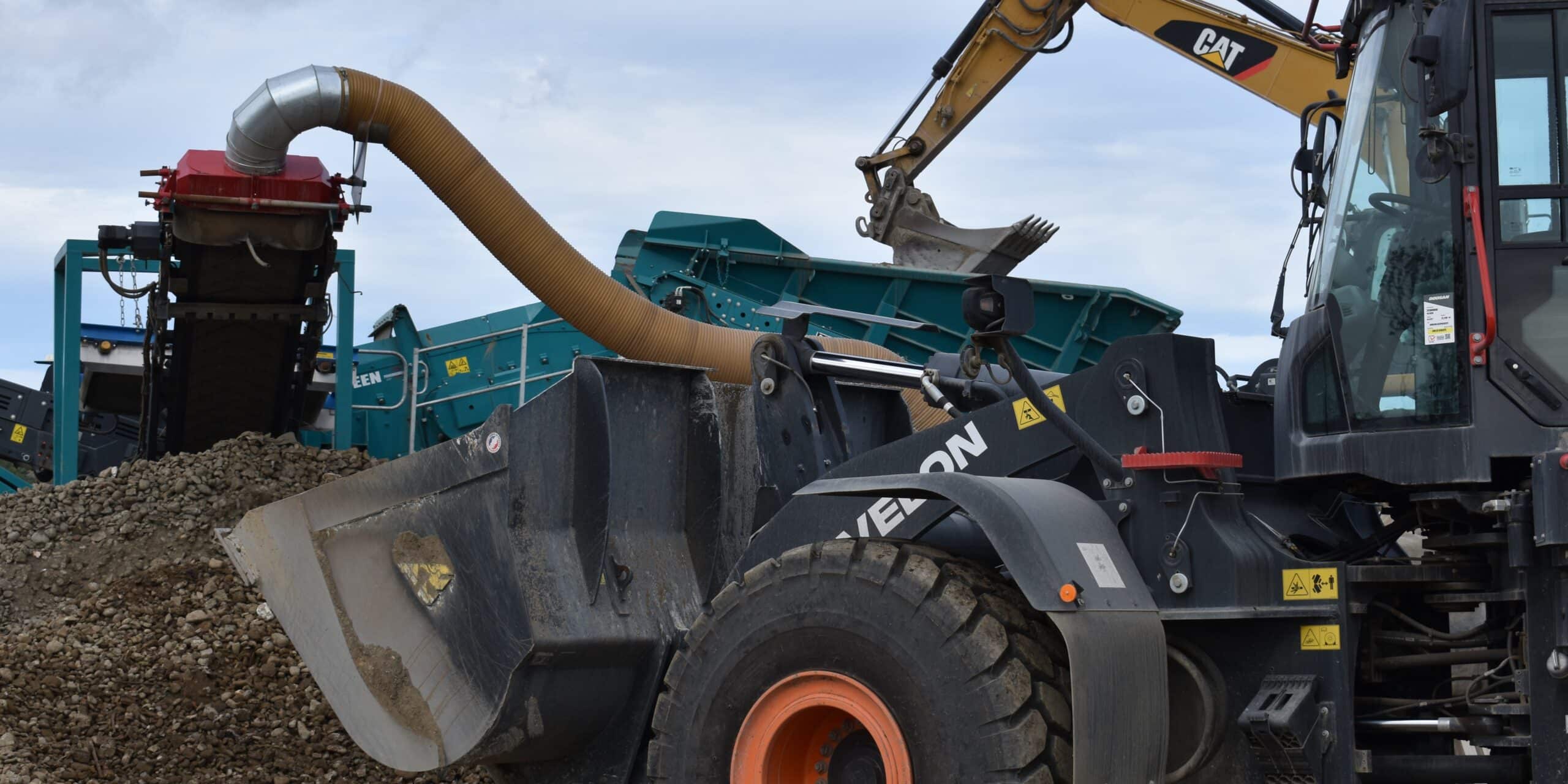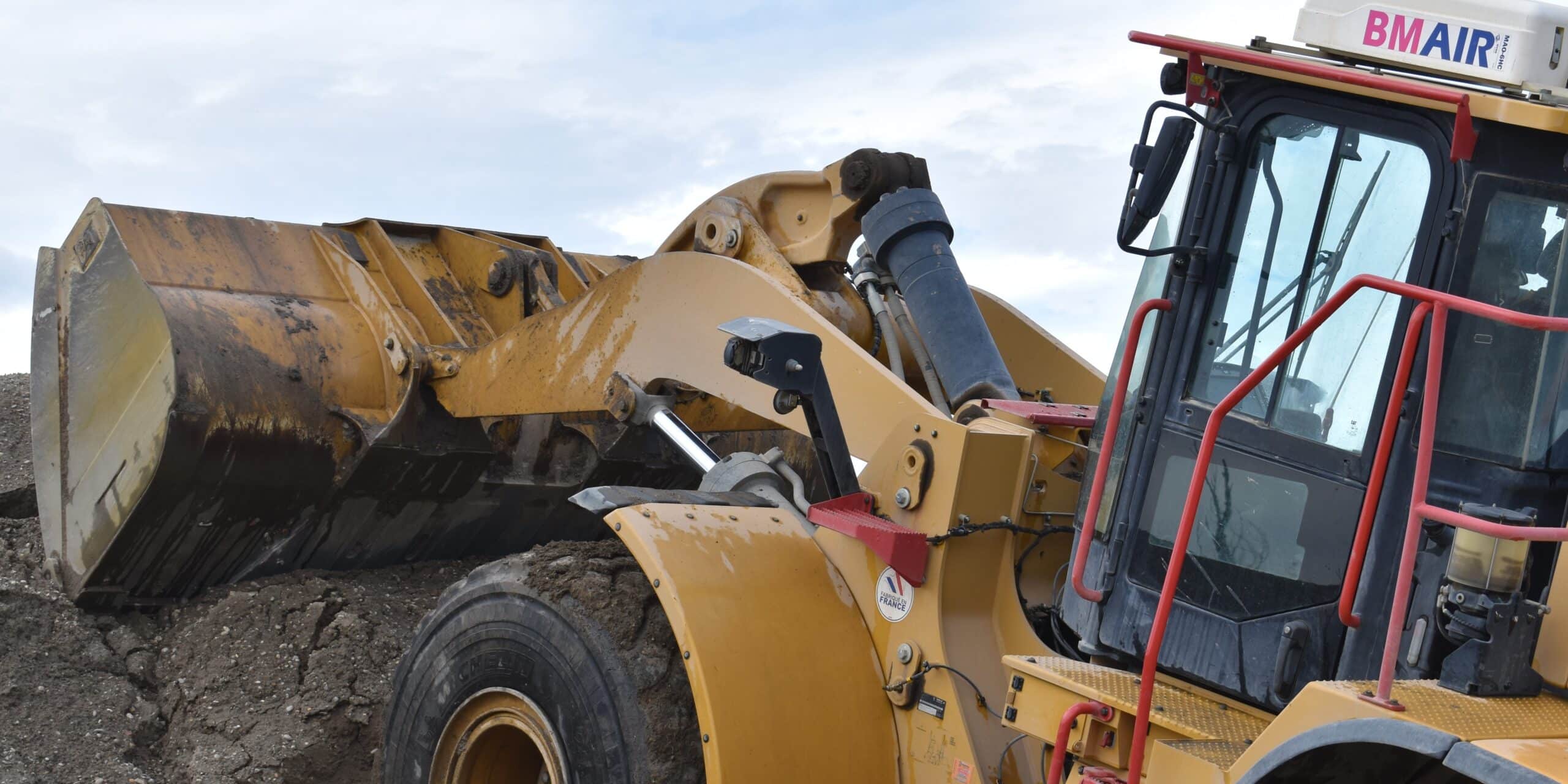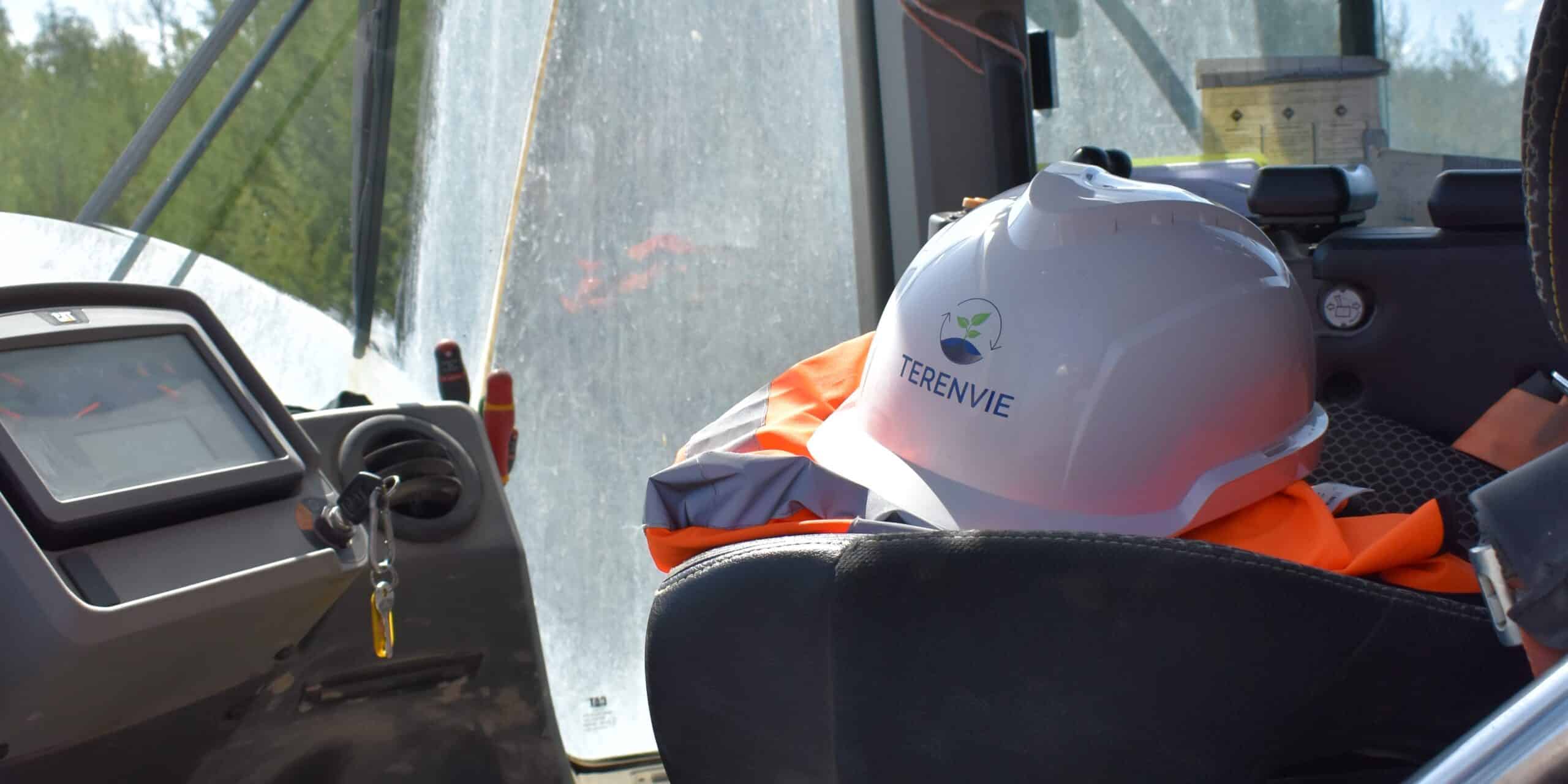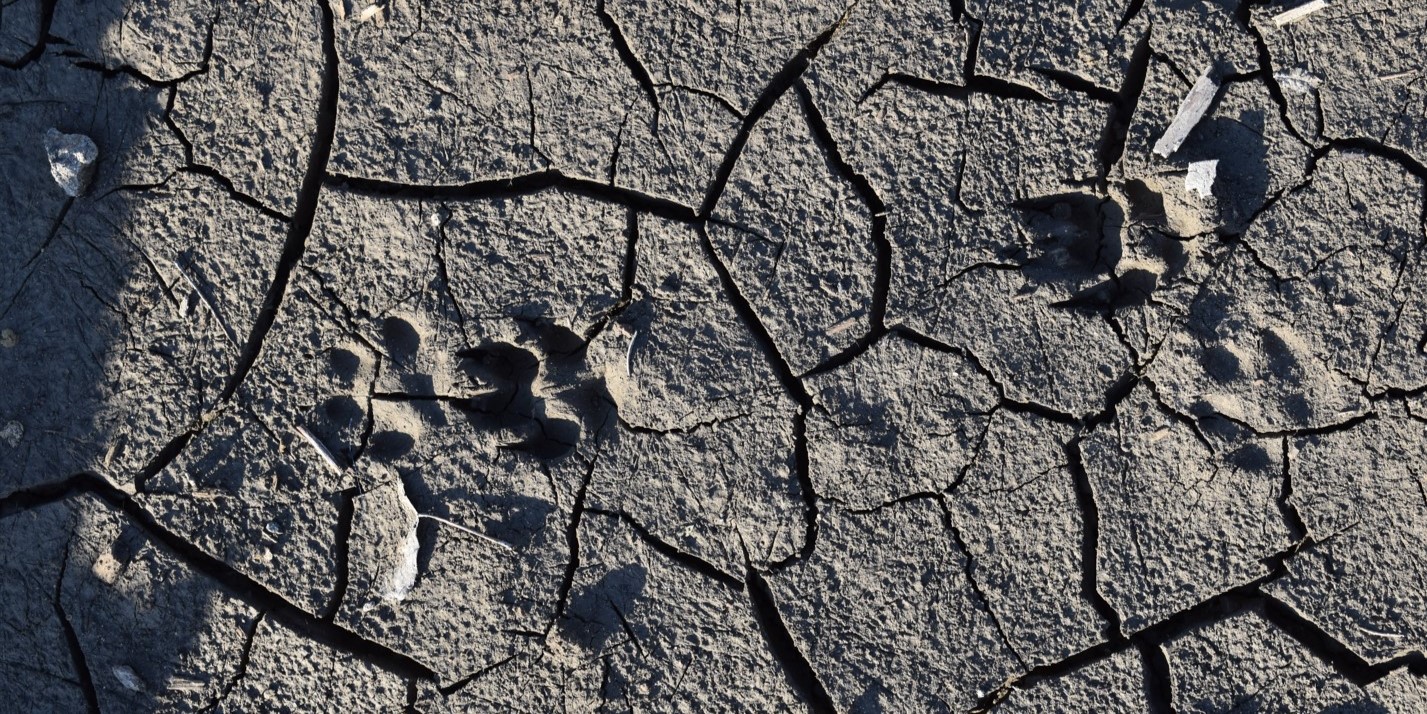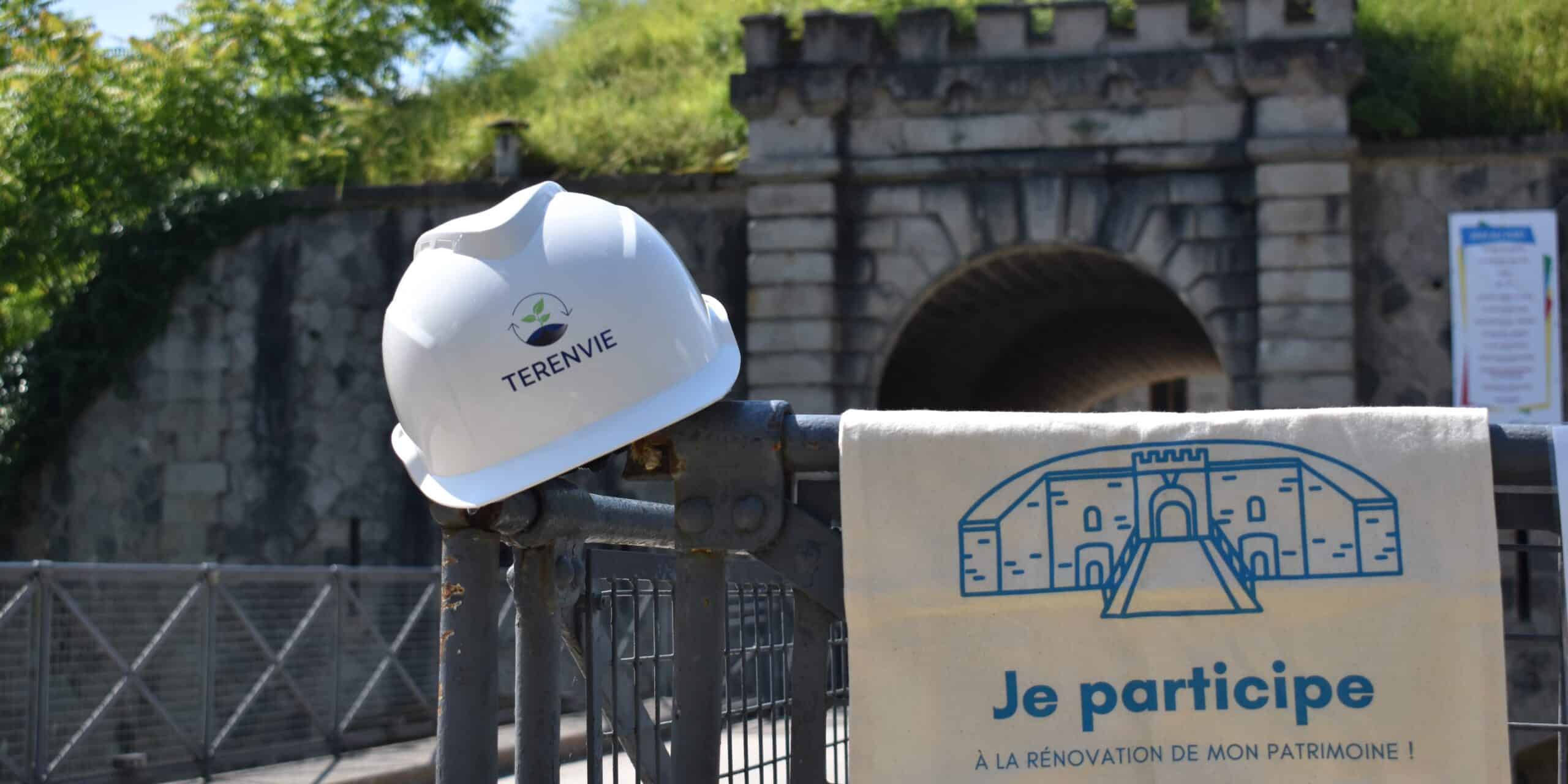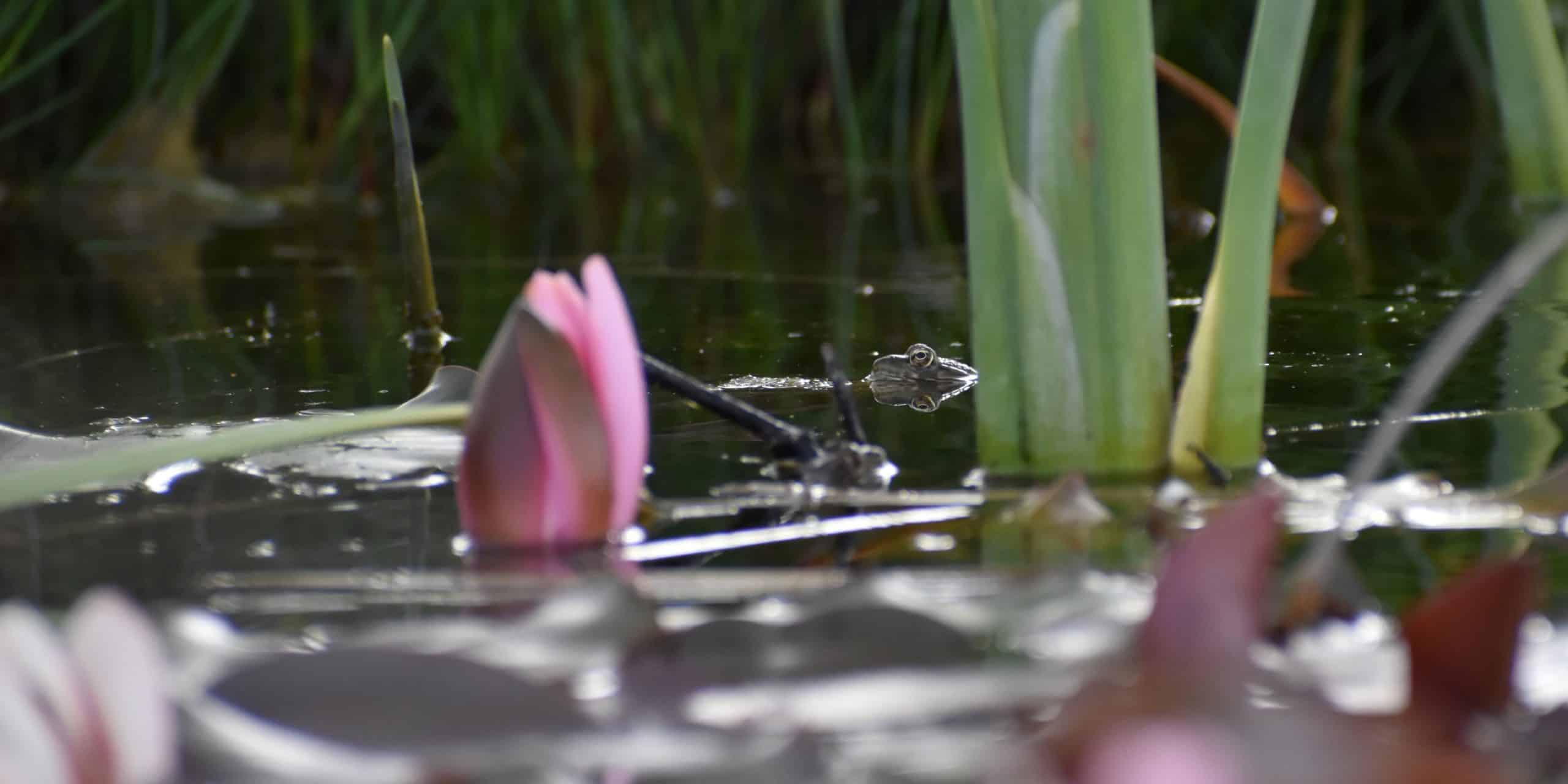Would you like to contact SERFIM or one of its companies?
ContactTERENVIE
Votre plateforme dédiée au traitement et à la valorisation des terres excavées et déchets minéraux, est implantée dans la Vallée de la Chimie depuis 2019.
ContactThe first platform for the total reclamation of polluted soil
Née d’un partenariat entre SERPOL, expert dans les métiers de la dépollution et le groupe cimentier VICAT, la plateforme de valorisation de matériaux non inertes, TERENVIE, s’inscrit dans la loi de transition énergétique pour la croissance verte.
TERENVIE, offers an ethical and ecological solution to all producers and holders of excavated soil.
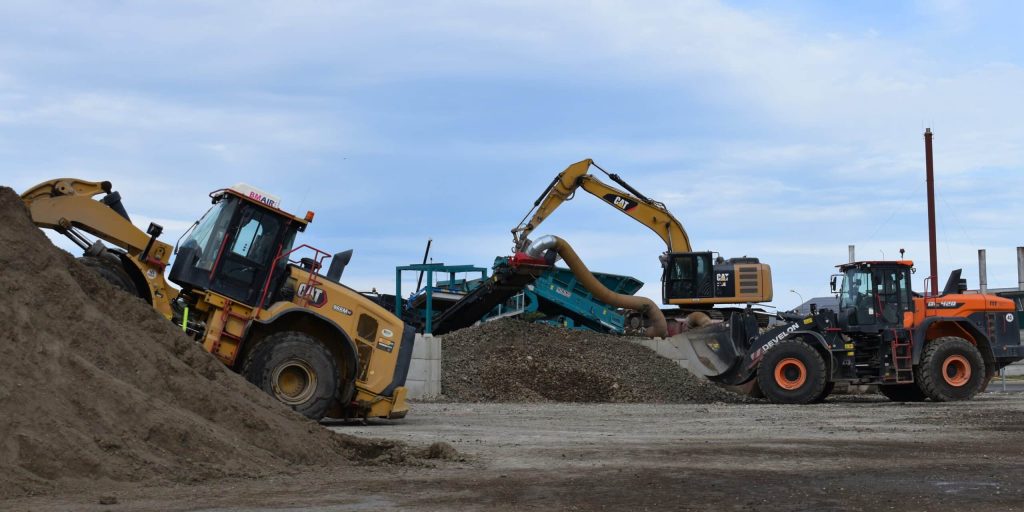
The circular economy to rebuild tomorrow!
Soil from construction and public works projects is processed or pre-treated (sorted, transited, grouped) on the TERENVIE platform. It is then incorporated into quarry materials, partially replacing natural resources, to make the cement needed to produce concrete. This eco-material, which meets all current technical and environmental standards, is ultimately reused for reconstruction (buildings, engineering structures, roads, street furniture, etc.), thus creating a virtuous short circuit of earth from deconstruction to reconstruction.
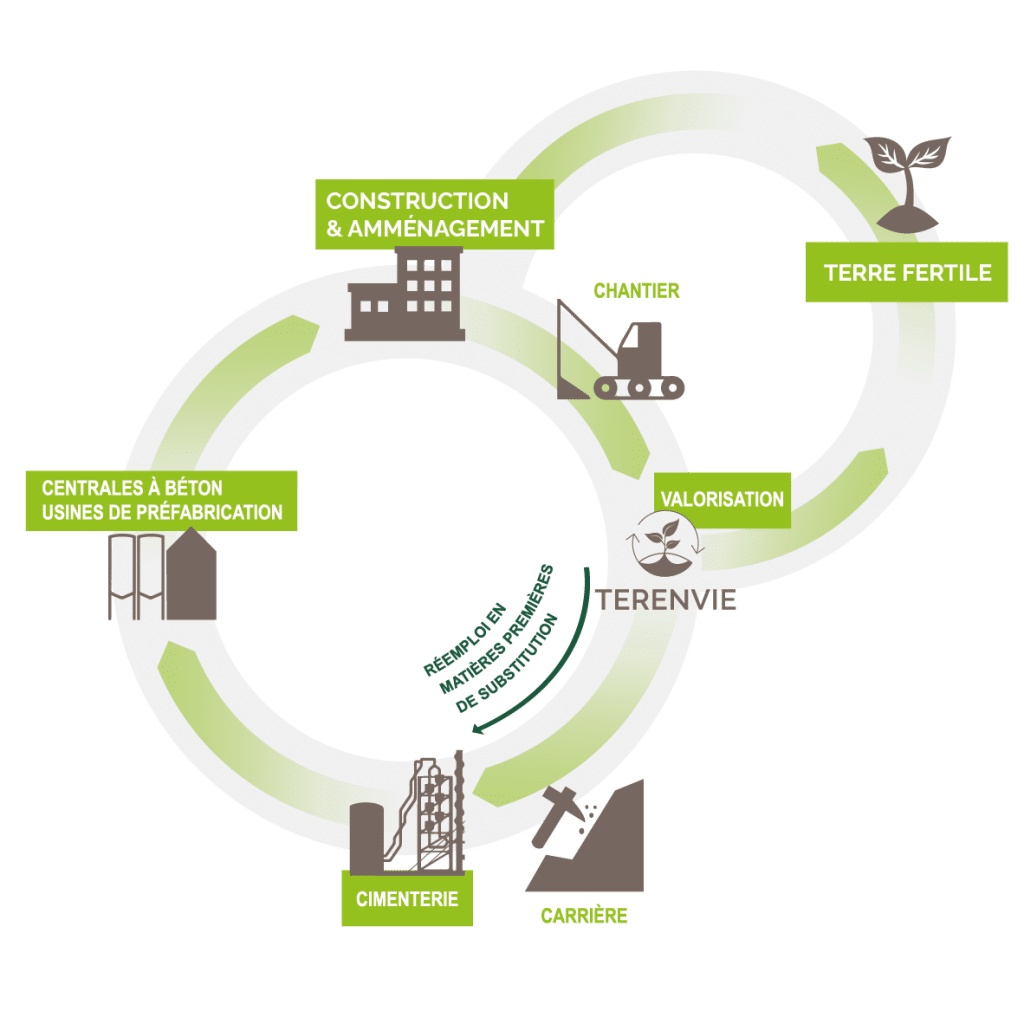
Land re-fertilization
TERENVIE is also proposing the refertilization of this soil. For TERENVIE, this means contributing to the greening of cities and the fight against urban heat islands, by organizing a virtuous loop of local soil excavated from building sites directly into new parks and green spaces in nearby areas. This solution also responds to the scarcity of fertile soil and the need to reduce transport between deconstruction sites and greening projects. TERENVIE is thus extending its circular economy offering by manufacturing fertile soils from treated soils, in particular by rhizodegradation. These soils, derived from short circuits, replace the fertile agricultural land that we need to preserve, thus limiting the environmental and financial impact of transport.

